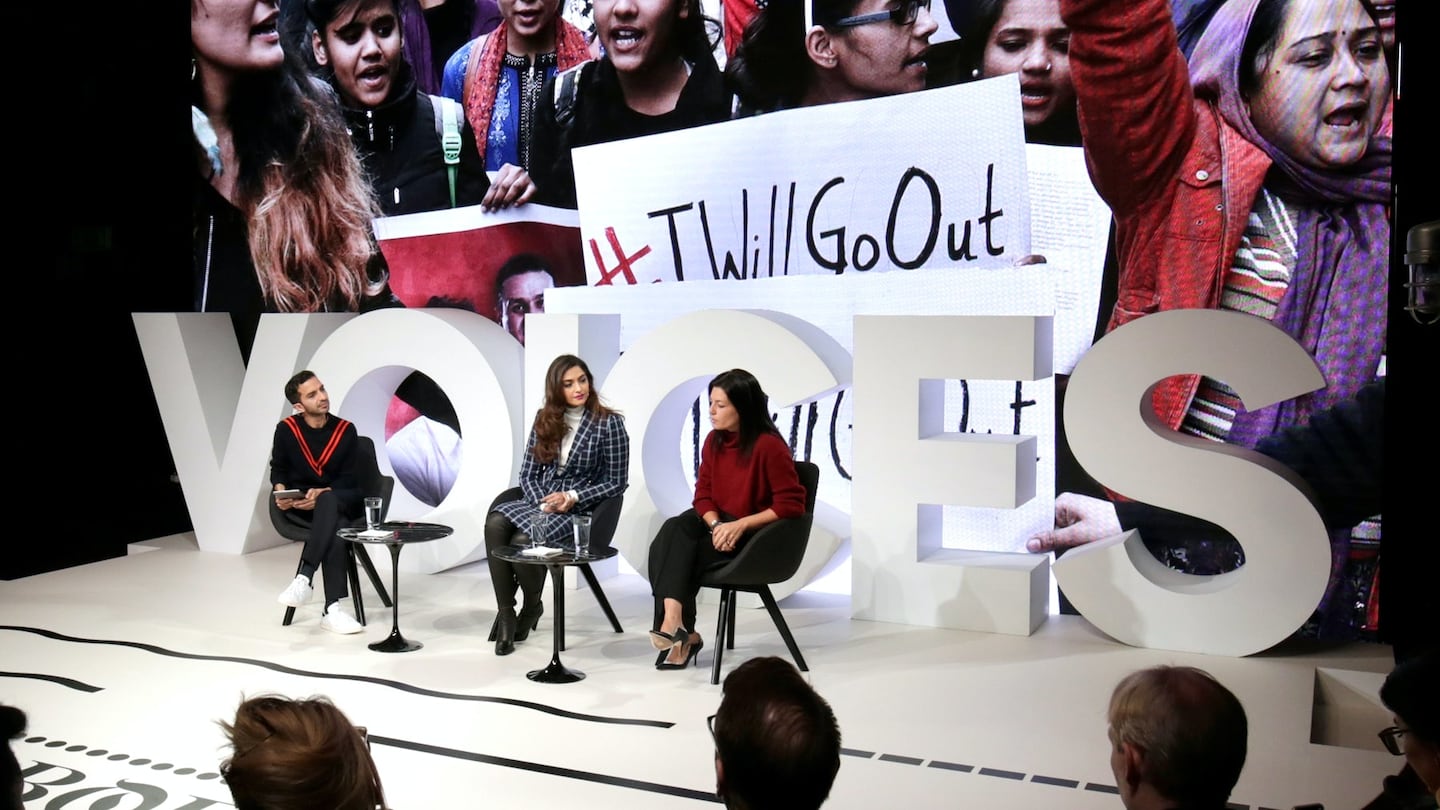
The Business of Fashion
Agenda-setting intelligence, analysis and advice for the global fashion community.

Agenda-setting intelligence, analysis and advice for the global fashion community.

OXFORDSHIRE, United Kingdom — In India, sex education is virtually non-existent, speaking out against harassment is frowned upon and many gynaecologists refuse to prescribe contraception to unmarried women. These are among the challenges that women in the country face as they fight against taboos and patriarchal norms, Sonam K Ahuja and Karla Bookman said on stage Friday at VOICES, BoF's annual gathering for big thinkers in partnership with QIC Global Real Estate.
But Indian women are fighting back, in growing numbers and with increasing success, both panelists said. “Feminism has been alive and well in India for a long time,” said Bookman, founder and editor of TheSwaddle, India’s only women’s health and culture website with a strong feminist lens. “What has changed is where they are pushing back against the status quo and they now have more of a platform with social media.”
Bookman said India’s culture is built around patriarchy, with women facing shame and stigma if they don’t adhere to traditional roles as wives and mothers. Schools rarely teach sexual education, often because teachers and parents are uncomfortable broaching the subject. Women often move in with their husband’s family after marriage and can lack adequate support in their new households, while outside help is rare, given India’s shortage of mental health professionals and sex-positive doctors, she said.
Change is coming via grassroots movements, Bookman said. Women are compiling and sharing lists of queer-friendly gynaecologists as well as doctors willing to prescribe contraception to unmarried women. Younger women, in particular, are less willing to go along with traditional stereotypes of how they should behave in the workplace and at home.
Feminism has been alive and well in India for a long time.
“Young women are not having it,” said Bookman.
Ahuja (née Kapoor), a renowned actress who comes from a family of Bollywood stars, said she’s also noticed a shift in the last decade that has only accelerated in recent years. She said her father, actor Anil Kapoor, has always encouraged her to use her fame to shed light on society’s ills and promote better treatment for women and the LGBTQ community.
Society often pushes back. Ahuja said early in her career, she called herself a feminist in interviews, only to be told by her public relations team that this would make her “unfeminine” in the eyes of fans. She ignored their advice, choosing roles that pushed the boundaries of how femininity is portrayed on Indian screens, which she jokingly described as “women dancing around trees.” In 2016, she starred in Neerja, based on the true story of a flight attendant who died saving passengers from hijackers, which went on to become one of the highest-grossing Bollywood films with a female protagonist.
Ahuja said it’s been a struggle convincing colleagues to join her in speaking out, particularly against rampant sexual harassment and abuse in the film industry.
“There’s a lot of shaming, a lot of victim blaming. I have a safety net. A lot of these girls and boys don’t have that,” she said. “It’s a patriarchal society and women are treated like garbage. We pray to goddesses [but] women are scared to talk about [abuse] and it’s so sad.”
To learn more about VOICES, BoF's annual gathering for big thinkers, visit our VOICES website, where you can find all the details on our invitation-only global gathering, in partnership with QIC Global Real Estate.
From analysis of the global fashion and beauty industries to career and personal advice, BoF’s founder and CEO, Imran Amed, will be answering your questions on Sunday, February 18, 2024 during London Fashion Week.
The State of Fashion 2024 breaks down the 10 themes that will define the industry in the year ahead.
Imran Amed reviews the most important fashion stories of the year and shares his predictions on what this means for the industry in 2024.
After three days of inspiring talks, guests closed out BoF’s gathering for big thinkers with a black tie gala followed by an intimate performance from Rita Ora — guest starring Billy Porter.